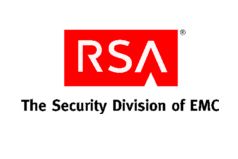RSA does the inevitable: Nation state blamed for hack
Tom Brewster thinks RSA has said nothing much at all about the hacks, which will most likely only hurt the company more.

COMMENT RSA has finally gotten round to claiming a nation state was behind the attacks on the company earlier this year, basically saying what everyone else was thinking.
Talking at the RSA Security Conference in London, executive chairman Art Coviello and other execs said the vendor had been targeted by two groups from one nation state.
In reality, very little new information emerged. We had already suspected a foreign power of wrongdoing here. The biggest indicator was the fact that the SecureID information taken was used to target US contractor Lockheed Martin. We are, of course, guessing. RSA is still guessing to some extent too no actual extra evidence has emerged to implicate a nation state.
With these new statements from Coviello, which confirmed nothing much at all, RSA hasn't made itself look much smarter.
Questions will now turn to what nation state was to blame. We haven't had to wait for conjecture to spew out of onlookers' mouths, with fingers already pointing at China.
Some may have been surprised by Coviello's reticence over which nation was to blame, but it should have come as no shock to anyone.
RSA has again highlighted a major issue with attacks purportedly involving a nation state: it is close to impossible to blame anyone. When China was recently questioned over its involvement in a hit on Mitsubishi Heavy Industries, with Chinese characters even found in the implicated malware's code, the country could easily deny the accusations by saying someone else planted those ideograms there. Nations accused of attacks can simply claim they themselves were the victims of clandestine actions of others.
Get the ITPro. daily newsletter
Receive our latest news, industry updates, featured resources and more. Sign up today to receive our FREE report on AI cyber crime & security - newly updated for 2024.
Everything is so nebulous around these kinds of attacks that there is little one can take away with surety from the whole nefarious saga.
Out of control
There is one thing we can be sure of though: RSA has not come out of this well.
When the company's admission came out in March, the company came under fire for not informing the world sooner.
And with these new statements from Coviello, which confirmed nothing much at all, RSA hasn't made itself look much smarter. Given the initial breach, which appeared to trick RSA employees into opening a malicious attachment with a very simple piece of social engineering, made EMC's security arm look a tad silly, you'd have hoped it would have come out looking in control.
Yet RSA gave some confusing messages. If it was able to see there were two hacking groups were involved, one said to be more visible than the other and known to "authorities", then why could it not track down, or at least have a strong idea, of which nation state was involved?
On the surface, it seems as though Coviello and Co know plenty about how and why the attack happened, possibly who the perpetrators were. So why do we still know so little?
RSA should be using this week as a chance to show its teeth and prove it has a firm grip on the case. We should all hope it gets back on the right track soon - if security companies aren't in control, then everyone should worry.
Tom Brewster is currently an associate editor at Forbes and an award-winning journalist who covers cyber security, surveillance, and privacy. Starting his career at ITPro as a staff writer and working up to a senior staff writer role, Tom has been covering the tech industry for more than ten years and is considered one of the leading journalists in his specialism.
He is a proud alum of the University of Sheffield where he secured an undergraduate degree in English Literature before undertaking a certification from General Assembly in web development.





